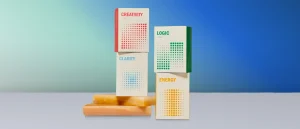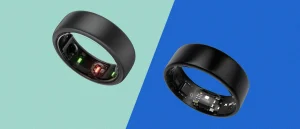Powerlifter Mark Bell Cured His Sleep Apnea With These Simple Steps
An estimated 22 million Americans suffer from obstructive sleep apnea (OSA) and powerlifter Mark Bell is no exception. He recently opened up about the condition, in which breathing repeatedly stops and starts during the night, on an episode of his Power Project podcast.
Without treatment, sleep apnea can lead to health problems, including high blood pressure, stroke, and heart failure. People who have sleep apnea often snore loudly, wake choking or gasping, and have restless sleep. This crummy slumber can impact you during daytime activities, leaving you irritable and lethargic and prone to headaches. If untreated, sleep apnea can increase your mortality risk, according to the American Academy of Sleep Medicine.
Powerlifters are particularly at risk for the sleep disorder experience since they have more body mass and typically larger neck circumferences. Men with a neck circumference greater than 17 inches are more likely to develop OSA given the amount of fat in the neck area crowding the breathing tube and obstructing the airway.
“Sleep apnea is very, very dangerous. People die in their sleep,” the self-nicknamed “Millionaire Meathead” said on the podcast. “It happened to a friend of mine who was a strongman competitor years ago, Mike Jenkins…These things happen and it’s a scary thing because you literally stop breathing while you’re sleeping.”
More Sleep
Mark Bell’s Sleep Apnea Cures
On the podcast, Bell said that he suspects that a long career of pumping iron, increased stress, and using performance enhancing drugs lead to his sleep issues. When sleep supplements failed to help, the 45-year-old founder of Mark Bell Sling Shot sought his own remedies. Now he says he sleeps better than he has in the last 15 years.
The biggest benefit, he says, is changing his breathing.
“What has changed most recently is me pushing myself with breathing,” Bell said. “Being able to breathe at a higher capacity, doing exercises that are challenging my breath, [and] learning about nasal breathing.”
With more cardio exercise and mobility work in his routine, Bell has seen improvement with his sleep. Makes sense: research confirms exercise can help people manage sleep apnea by improving cardiorespiratory fitness and sleep efficiency. A 2022 study found exercise also prevents hypoxia (low oxygen levels) and increases cognitive functioning in those with sleep apnea.
Another Bell-endorsed treatment is myofascial release therapy, a massage technique that loosens membranes that connect and support your muscles to relieve pain and inflammation. A 2018 study found myofascial release to be an effective treatment for adults with sleep apnea. Study authors note that the technique reduces snoring while improving overall quality of life.
Bell says that he also limits the amount of light in his bedroom, a recommended tip from the Sleep Foundation since increased light interferes with sleep cycles and fragments sleep, while also using ice baths and warm showers to relax his body.
Celebrity Health
Bell’s Advice for Overcoming OSA
As for equipment, Bell doesn’t use the popular CPAP machine often prescribed for sleep apnea. Instead he uses a dentist-made device that moves his jaw forward and prevents his tongue from blocking his airway. He also relies on mouth tape to avoid breathing through his mouth, which can cause dryness and disrupt sleep.
“I don’t want to leave stuff out and have people think that they can just go and try to implement a bunch of these different things, but what I recommend is you try to implement one thing at a time and see if it’s something you can do,” Bell says.
“No matter what it is, if it’s just one thing that you can try and see is that yielding some results…then you might end up like me where you have kind of a bunch of different things that you’ve stacked up.”
Check out the whole episode of Mark Bell’s Power Project podcast below.














